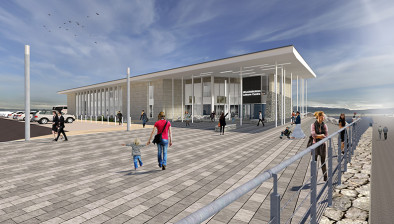Claire Logue: What next for COVID-19’s impact on construction contracts?

Claire Logue
Coronavirus has had a significant impact on construction projects in terms of delay as well as direct and indirect costs and Claire Logue says it is uncertain how these will be dealt with by the courts.
As the Rolling Stones wisely advise us, “You can’t always get what you want… but if you try sometime, you find you get what you need…”
It would be a fair assumption that Mick Jagger and co. were not discussing the Scottish construction sector when penning those lyrics, but its sentiment does ring true when thinking about the next steps for the sector as we navigate through the easing of advised lockdown procedures.
Currently, we are edging along the Scottish Government’s Framework for Decision Making - Scotland’s Route Map out of the crisis. As of Monday 22 June 2020, the construction sector can implement the remaining phases of the sectoral plan. While the immediate focus will be to get back on site and the implementation of safe, compliant working practices, those in the industry will already be considering the impact lockdown has had on the progress of projects and, while no-one is at fault, who will be responsible for the inevitable financial burden caused by site closures.
As is usually the case, when considering responsibility for delay and additional costs, the starting point is the contract. It may be that those negotiating the terms of the contract had the foresight to include express provisions that deal with the impact of the coronavirus lockdown - however, given that COVID-19 and the resultant lockdown is unprecedented, that is unlikely. Instead, it is likely to be a matter of contractual interpretation and the subtleties of the specific drafting that will determine who is going to pay for the additional time and associated costs of lockdown and the subsequent socially distanced working practices. However, it is not unusual for there to be more than one way to interpret a contract and, given the unique situation we are currently in, there are few precedents to assist.
Ultimately, where there is a disagreement between the parties, the correct interpretation of the impact of COVID-19 on construction contracts may be determined by the courts/arbitration. It is anticipated that there will be an upturn in court actions seeking judicial determination on such disputes. However, resolving disputes in court or in arbitration can take a significant amount of time and may be at substantial cost. Adjudication is a swifter process for the resolution of disputes, but outcomes are uncertain and the process can still be costly.
Given the impact the virus has had and will continue to have (at least in the short term) on the economy, parties should be wary of commencing expensive legal battles against any entity that may not be financially stable - there is little to be gained from a pyrrhic victory.
In these uncertain times, rather than seeking to apportion blame, the focus should be on completing projects with as little further disruption as possible - that is likely to be the commercially sensible approach. To do that, parties should be encouraged to explore what mutually satisfactory arrangements can be agreed to share the impact that lockdown and the virus has had on projects. That does not automatically mean that parties should share the financial burden equally. Instead, efforts should be made to find alternative and creative arrangements that are acceptable for all parties to allow projects to be completed quickly and cost effectively. With this approach, we may well be hearing more cries of Jagger’s “…if you try sometime, you find you get what you need…” sooner rather than later.
- Claire Logue is senior associate in the construction disputes team at Morton Fraser















